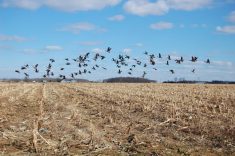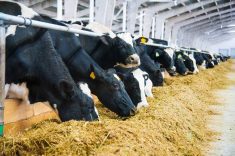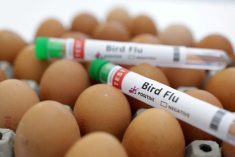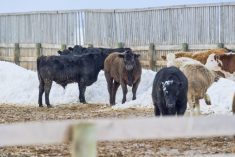Manitoba has lost its chance of getting through 2024 without a domestic bird flu case in poultry.
The Canadian Food Inspection Agency confirmed the province’s first case of highly pathogenic avian influenza (HPAI) in tame birds this year Nov. 26. The infection was found on a commercial operation in the RM of Portage la Prairie.
As of Nov. 28, the CFIA was still determining details of a control zone around the site.
Read Also

Canadian Cattle Association names Brocklebank CEO
Andrea Brocklebank will take over as chief executive officer of the Canadian Cattle Association effective March 1.
Why it matters: Canada is once again racking up bird flu infections, although not as badly as some previous years.
The case was confirmed almost a year to the day since Manitoba’s last bout of HPAI. The last recorded infection was on Nov. 24, 2023, on a commercial poultry site in the RM of West St. Paul.
Manitoba has largely been spared the serious outbreaks seen in other parts of the country and in the U.S., where HPAI has also become a serious issue in dairy barns. As of Nov. 26, the province had counted 24 cases since the start of 2022. In comparison, the CFIA has recorded 82 cases in Alberta, 54 cases in Quebec and 158 cases in B.C. in th same time frame.
North America has been suffering some of its worst bird flu years on record in the last three years. In total, over 12.7 million domestic birds have been impacted in Canada alone, according to the CFIA.
B.C. is taking the brunt of Canada’s bird flu problems so far this fall. With the exception of four in Alberta, three in Quebec and one each in Manitoba and Saskatchewan, all of Canada’s HPAI confirmations since the start of October have come from B.C., with areas around Chilliwack and Abbotsford being hot spots. Fifty-four of the nation’s 63 active cases as of Nov. 26 were in B.C.
B.C. also saw Canada’s first domestically acquired human case of the illness this fall. A teenager was hospitalized and reported to be in critical condition after contracting HPAI. Officials later confirmed that the pathogen infecting the teen was genetically related to the one floating around the province’s poultry operations and wild birds.
A B.C. government update, also posted Nov. 26, noted that an investigation following the teen’s illness had unveiled “no additional cases nor evidence of human-to-human transmission,” and that testing of pets, people, and other animals and birds in nearby sites had all come back clear of the virus.
“Though we have not been able to determine definitively the source of exposure, we were able to rule out many potential risks and ensure there are no further cases related to this young person,” B.C.’s provincial health officer, Dr. Bonnie Henry, said in the update.
The U.S. meanwhile, has had several dozen human infections this year. The Centers for Disease Control and Prevention has noted 55 cases in 2024, over half of which were linked to exposure to cattle.
As of Nov. 26, the U.S. Department of Agriculture now says HPAI cattle cases in the U.S. have been found on 675 sites across 15 states, while poultry cases had impacted 6.06 million birds in November alone.


















